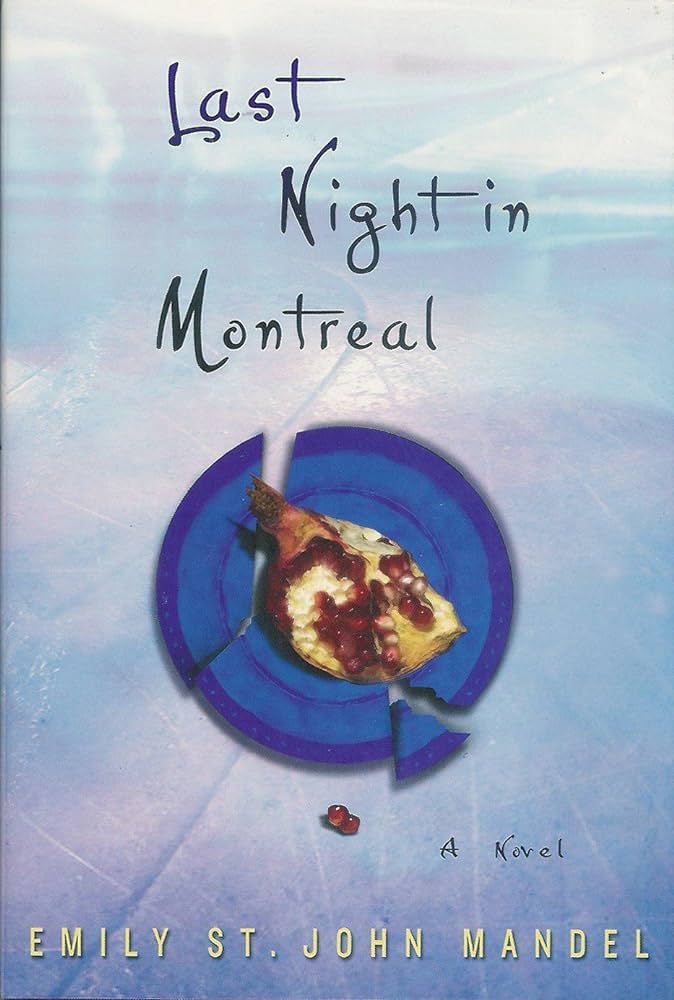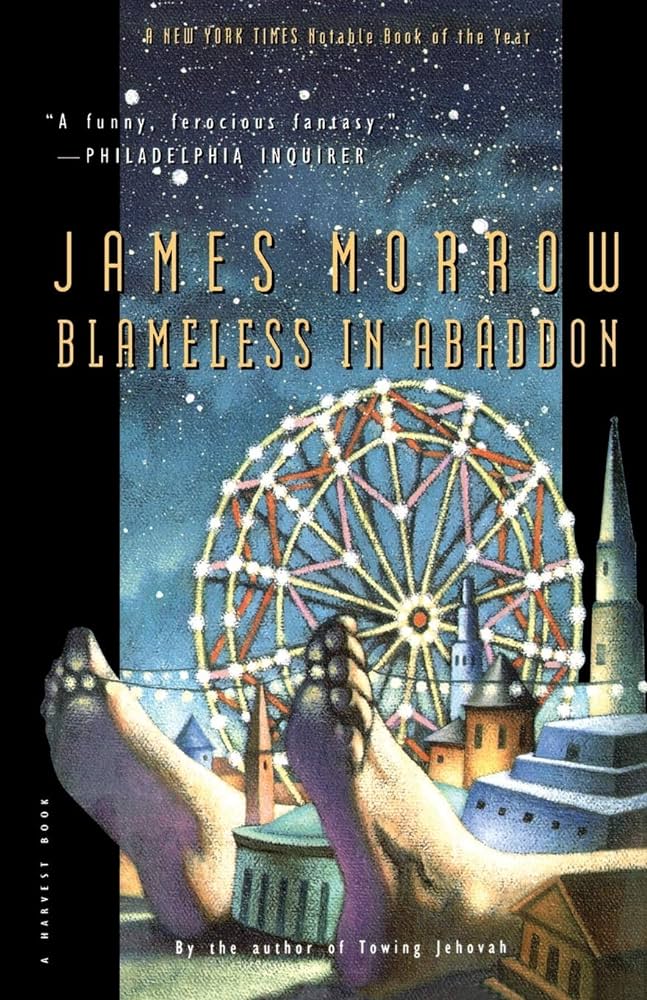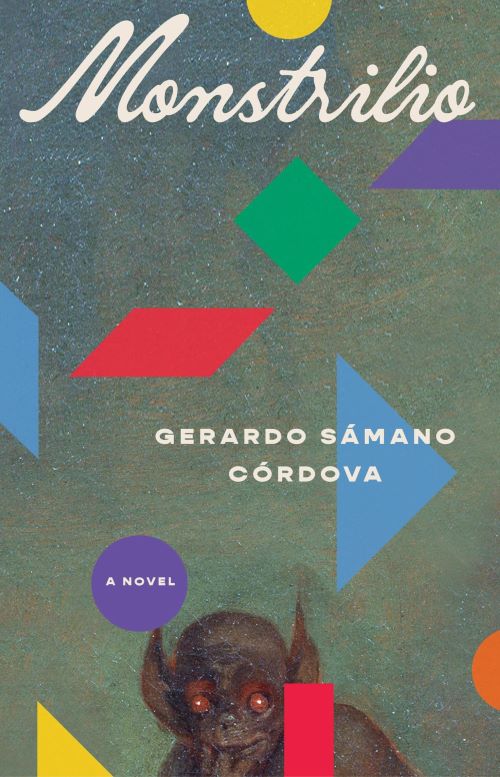There are books that stick with you. You read them at just the right time in your life, and they change everything. Or, at least, they make you think about things differently. These are the books I recommend to everyone–and I lend them out freely in hopes that the lendee will be rapturous after reading, ready to debate the book’s finer points and eager to discuss characters and plots. Sometimes it happens, and sometimes it doesn’t, but I never regret being that person who foists my favorites on everyone I know.
And I have–foisted them on everyone. Whether emotionally devastating, frightening, sweet, or maddening, here is a list of the five books I have recommended a million times.
 A Prayer for Owen Meany by John Irving (March 1989, William Morrow). I read Owen Meany shortly after I turned 17, and it taught me about the kind of writer I want to be, someone who can plot intricate and delicate stories, craft memorable characters, and combine genres. Most people probably consider Owen Meany literary fiction (at Amazon it’s classified as classic literary fiction and classic American fiction), but I consider it a ghost story and a story about fate. It’s also a gorgeous coming-of-age story and an anti-war story. Whenever someone asks me for a story that makes them feel something, this is the book I thrust at them.
A Prayer for Owen Meany by John Irving (March 1989, William Morrow). I read Owen Meany shortly after I turned 17, and it taught me about the kind of writer I want to be, someone who can plot intricate and delicate stories, craft memorable characters, and combine genres. Most people probably consider Owen Meany literary fiction (at Amazon it’s classified as classic literary fiction and classic American fiction), but I consider it a ghost story and a story about fate. It’s also a gorgeous coming-of-age story and an anti-war story. Whenever someone asks me for a story that makes them feel something, this is the book I thrust at them.
I’ve heard it said that one of the major themes in the book is powerlessness–and when you’re a 17-year-old girl living in a rural town, feeling like you have no agency in your life, that is something that resonates. There is also a running through-line in the novel about religious faith that charmed me. Most teens who spend time interrogating their own beliefs consider their religious beliefs, and that included me. I had already decided I was an atheist by the time I read Owen Meany, but I think of that novel every time the subject of ghosts comes up. The sheer brilliance of casting Owen as kid as the Ghost of Christmas in a play juxtaposed against against a scene in chapter 9 when John is older when he’s saved from falling down the stairs by Owen’s ghostly hand on his shoulder–“DON’T BE AFRAID. NOTHING BAD IS GOING TO HAPPEN TO YOU.” Okay, I’m shivering just thinking about it.
 Last Night in Montreal by Emily St. John Mandel (Vintage, June 2009). When most people think about Emily St. John Mandel, they think about Station Eleven, but Last Night in Montreal was the first book I read by her–and it remains my favorite. Mandel, like Irving, is a master of weaving together multiple narratives in a very impressive way. This one is a bit of a mystery, with the reader being the one on the outside, trying to figure out Lilia Albert’s life… and why there’s a private investigator, the son of a circus lion tamer, following her.
Last Night in Montreal by Emily St. John Mandel (Vintage, June 2009). When most people think about Emily St. John Mandel, they think about Station Eleven, but Last Night in Montreal was the first book I read by her–and it remains my favorite. Mandel, like Irving, is a master of weaving together multiple narratives in a very impressive way. This one is a bit of a mystery, with the reader being the one on the outside, trying to figure out Lilia Albert’s life… and why there’s a private investigator, the son of a circus lion tamer, following her.
There’s something about the writing that has always drawn me into this book: crisp and clever:
“He told himself to stay calm, and realized in the telling that he’d been waiting for this moment. He told himself that she’d just been distracted by a bookstore. It was entirely possible. Alternatively, she liked trains: at this moment she could be halfway back from Coney Island, taking pictures of passengers, unaware of what time it was. With this in mind, he returned reluctantly to the work; a particular sentence had gotten all coiled up on him while he was trying to express something subtle and difficult, and he spent an uneasy half-hour trying to untangle the wiring and making a valiant effort not to dwell on her increasingly gaping absence, while several academic points he was trying to clarify got bored and wandered off into the middle distance. It took some time to coax them back into focus, once the sentence had been mangled beyond all recognition and the final destination of the paragraph worked out. But by the time the paragraph arrived at the station it was five o’clock, she’d left to get the paper before noon, and it no longer seemed unreasonable to think that something had gone horribly wrong.”
Who wouldn’t want to read more of that?
 Blameless In Abaddon by James K. Morrow (Harper Voyager, September 1997). No one quite believes me when I tell them the basic plot of Blameless: The comatose, two-mile-long body of God, which had been discovered in the Arctic in the previous book in this trilogy and town to Florida, is now a tourist attraction at a religious theme park… until a very angry judge decides to put God on trial in The Hague for crimes against humanity. And it’s an absolutely hilarious, absurdist book–by a Pennsylvania writer.
Blameless In Abaddon by James K. Morrow (Harper Voyager, September 1997). No one quite believes me when I tell them the basic plot of Blameless: The comatose, two-mile-long body of God, which had been discovered in the Arctic in the previous book in this trilogy and town to Florida, is now a tourist attraction at a religious theme park… until a very angry judge decides to put God on trial in The Hague for crimes against humanity. And it’s an absolutely hilarious, absurdist book–by a Pennsylvania writer.
This book always pops into my head when bad things happen to good people since that the basic crux of the lawsuit against God, the outcome of which is–the judge hopes–to remove God from life support: a death sentence carried out on God. And, given the 1% are currently intent on destroying Democracy and the world, the following quote from Blameless feels constantly current–“Blessed are the mendacious, for they shall grown wealthy behind their wildest dreams.”
Sometimes you just need to read something that’s going to make you laugh when everything around you is falling apart… and that’s why I continue to recommend Blameless in Abaddon to everyone.
 The White Devil by Justin Evans (Harper, 2011). This book is often enough a controversial pick, mostly because of how I describe it. I consider it a young adult horror novel, even though it was marketed (and continues to be marketed) as and adult literary ghost story. People can be weirdly loyal to how things are pitched to them. Whatever the case, the reason I keep giving this book to people is that it’s an excellent story about being haunted.
The White Devil by Justin Evans (Harper, 2011). This book is often enough a controversial pick, mostly because of how I describe it. I consider it a young adult horror novel, even though it was marketed (and continues to be marketed) as and adult literary ghost story. People can be weirdly loyal to how things are pitched to them. Whatever the case, the reason I keep giving this book to people is that it’s an excellent story about being haunted.
It features an American teen who’s gotten himself into a bit of trouble, exiled to the Harrow School in England to finish out his education–and fielding visits from a strange, pale boy who may or may not be a ghost. And then there’s the American teen’s striking resemblance to the poet Lord Byron, who just happens to be a graduate of Harrow School. Part murder mystery, part gay love story, part Gothic ghost story, The White Devil always gives the chills, and sometimes that’s exactly what you need.
 Monstrilio by Gerardo Sámano Córdova (Zando, March 2023). Monstrilio is a recent addition to the list, and people in my life are absolutely sick to death of hearing me talk about it. This, like Blameless in Abaddon, is a book where no one quite believes me once I’ve finished describing it. A grieving mother cuts out a piece of lung from her very recently dead kid, and–based entirely on hope and an old folktale–she feeds the lung piece until it gains sentience and grows into a carnivorous humanoid that takes her son’s place.
Monstrilio by Gerardo Sámano Córdova (Zando, March 2023). Monstrilio is a recent addition to the list, and people in my life are absolutely sick to death of hearing me talk about it. This, like Blameless in Abaddon, is a book where no one quite believes me once I’ve finished describing it. A grieving mother cuts out a piece of lung from her very recently dead kid, and–based entirely on hope and an old folktale–she feeds the lung piece until it gains sentience and grows into a carnivorous humanoid that takes her son’s place.
The book is described as literary horror–and yes, the writing is beautifully simple:
“I wanted him to snap, to finally and absolutely lose it. To break. He was withering. To wither is not the same as to break; to break is to have pieces to put back together, and to wither is to dry up, to wilt, to lose bone, to die, and death is the most boring.”
The writing is not why I keep recommending this book, though–it’s far more than that. While this is absolutely a horror novel, it’s also a book about grieving/mourning–done in a way that I’ve never quite seen before. And Monstrilio himself, well, you’re meant to find him grotesque while at the same time you fall deeply in love with him for his innocence. The dichotomy is strange and lovely.
So there you go, my five books. If you’re ever at my house, you can always count on me having a spare copy to hand out–but be prepared later on to sit down over a cup of tea to talk about plot and character!

